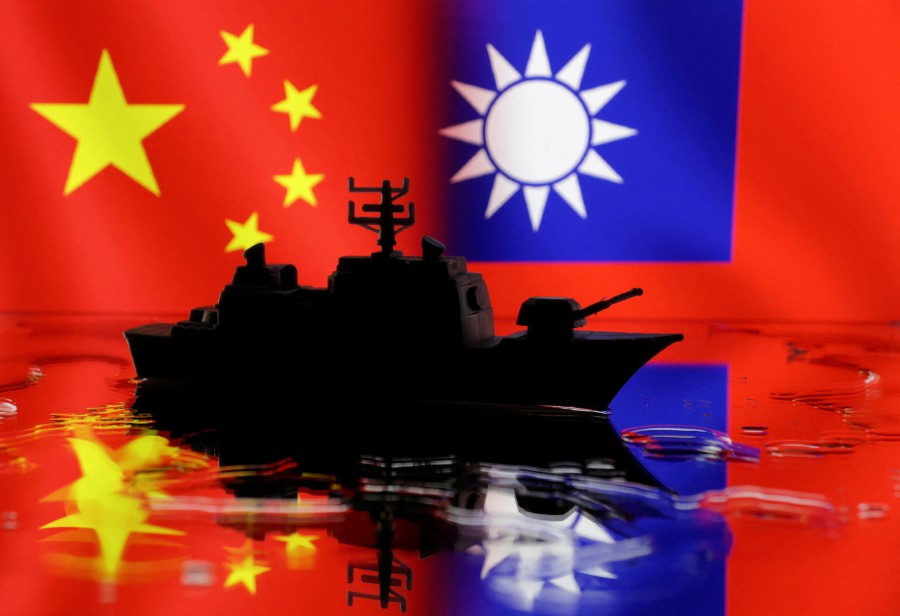With regional tensions rising, principally because of China's claim over Taiwan, Sino-American geopolitical rivalry has again turned the South China Sea into a powder keg.
China regards Taiwan as an integral part of the People's Republic, which must eventually be reunited, by force if necessary. The United States' determination that the Taiwan status quo can only be changed by peaceful means war drums are beating like never before.
On the heels of China's war games in response to the Taiwan president's US visit, the largest ever US-Philippine military exercises are now happening in the northern Philippines, involving tens of thousands of troops.
The Philippines insists the Balikatan exercise with the US is purely defensive. Despite such protestation, there is no mistaking that it is aimed at China.
China and the South China Sea littoral states of Vietnam, the Philippines, Indonesia, Brunei and Malaysia have overlapping claims in the strategic waterway. Beijing's Nine Dash line covers almost the entirety of the South China Sea as it goes right up to the territorial waters of all these states.
Beting Patinggi Ali is a mere 155km off the coast of Miri, Sarawak's oil-town, and yet China often sends its coastguard vessels 1,400km from its own shores to patrol there!
It is good to hear Prime Minister Datuk Seri Anwar Ibrahim clarify that the country will never compromise on its territorial integrity after earlier suggesting he will "negotiate" with Chinese President Xi Jinping.
To be sure, our relations with the rising superpower that China is requires artful compromises.
Negotiating the crosscurrents of these issues severely tests our diplomacy.
What the Philippines has done in similar circumstances is instructive.
Then president Ferdinand Marcos (the current president's father) followed the path beaten in 1974 by Tun Abdul Razak Hussein to establish diplomatic relations with China. It was a big deal that the US' oldest Asian treaty ally recognised the People's Republic before the US did in 1979.
The Philippines' independent posture reached its zenith when, under Marcos' successor, Corazon Aquino, the US was ejected from two of its critical bases, Subic Bay and Clark in 1991.
If political power abhors a vacuum, China promptly stepped in to fill the void in our maritime commons as the US withdrew.
Under the Ramos and second Aquino presidencies, China's encroachment on the reefs within Philippine territorial waters became more brazen, leading to President Benigno Aquino III filing a case with the international tribunal provided under the United Nations Convention on the Law of the Sea. The tribunal handed down an unanimous ruling in 2016 that shredded China's "Nine Dash" line.
Despite this legal triumph, newly elected president Rodrigo Duterte decided to set it aside in pursuit of better relations with China. Still, by the end of Duterte's tenure, he had to cancel negotiations with Beijing over joint hydrocarbon explorations in the since renamed West Philippine Sea.
Then, newly elected President Ferdinand "Bongbong" Marcos made Beijing his first foreign call in 2022, likely in hopes of extracting new Chinese concessions.
Not long after, it was announced that the Philippines would allow US access to several other bases in northern Luzon and Palawan.
The largely dormant Mutual Defence Treaty with the US is, thus, revived.
Columnist Segundo Eclar Romero possibly spoke for many Filipinos when he wrote on April 11: "China has become the bully it warned the world against when it was still prostrate. China has missed the sterling message of Paolo Freire's 'Pedagogy of the Oppressed' that the oppressed, in rising from adversity, should use critical thinking to free themselves from the shackles of institutionalised ruling class dominance, never allowing themselves to become the oppressor in turn and in the mould of its former tormenter."
The writer views developments in the nation, region and wider world from his vantage point in Kuching
The views expressed in this article are the author's own and do not necessarily reflect those of the New Straits Times



